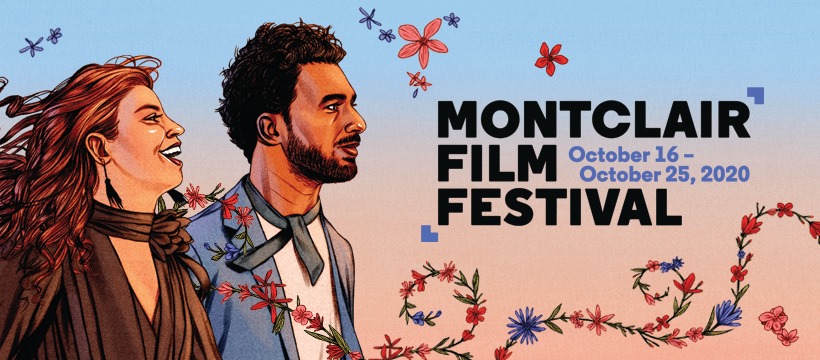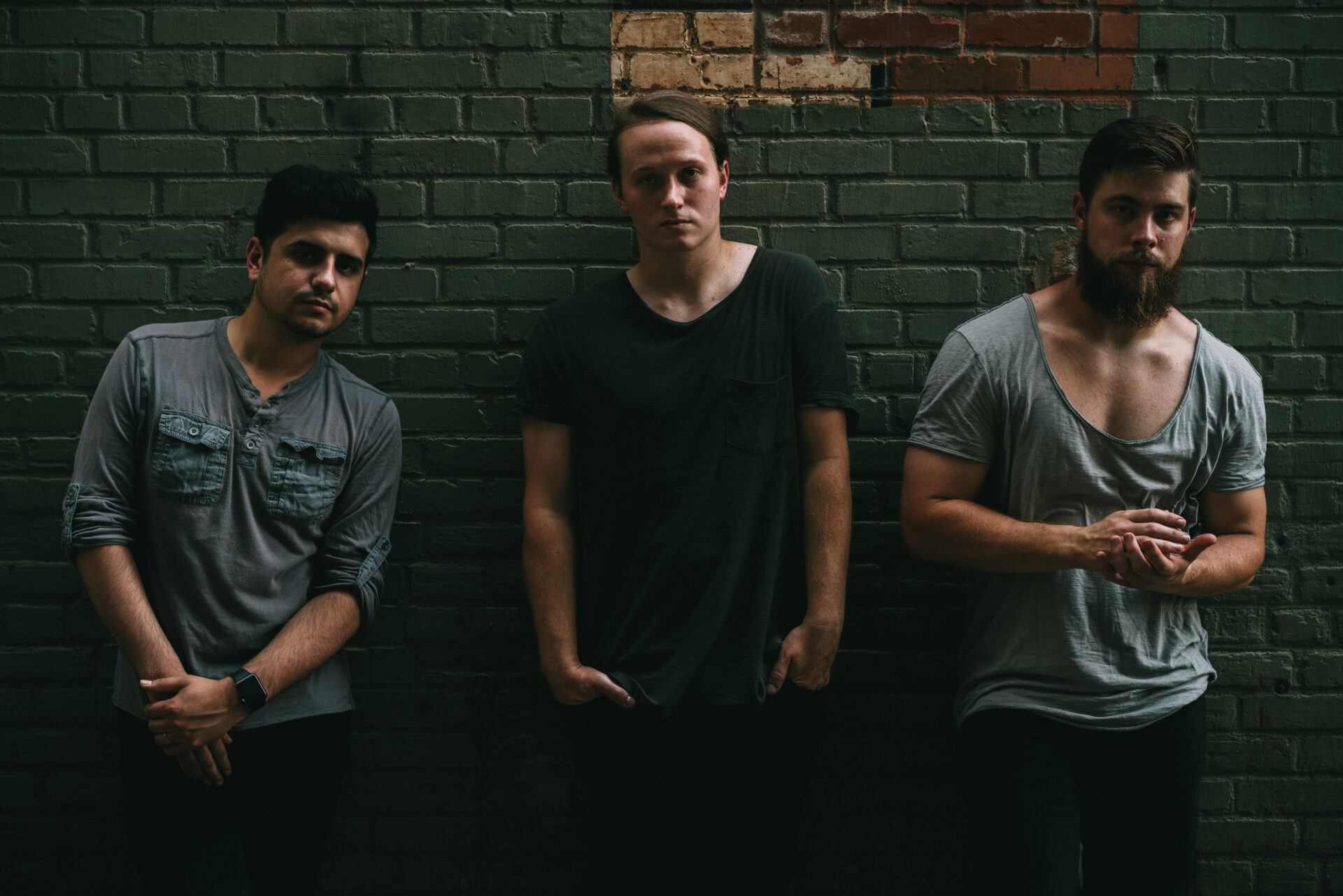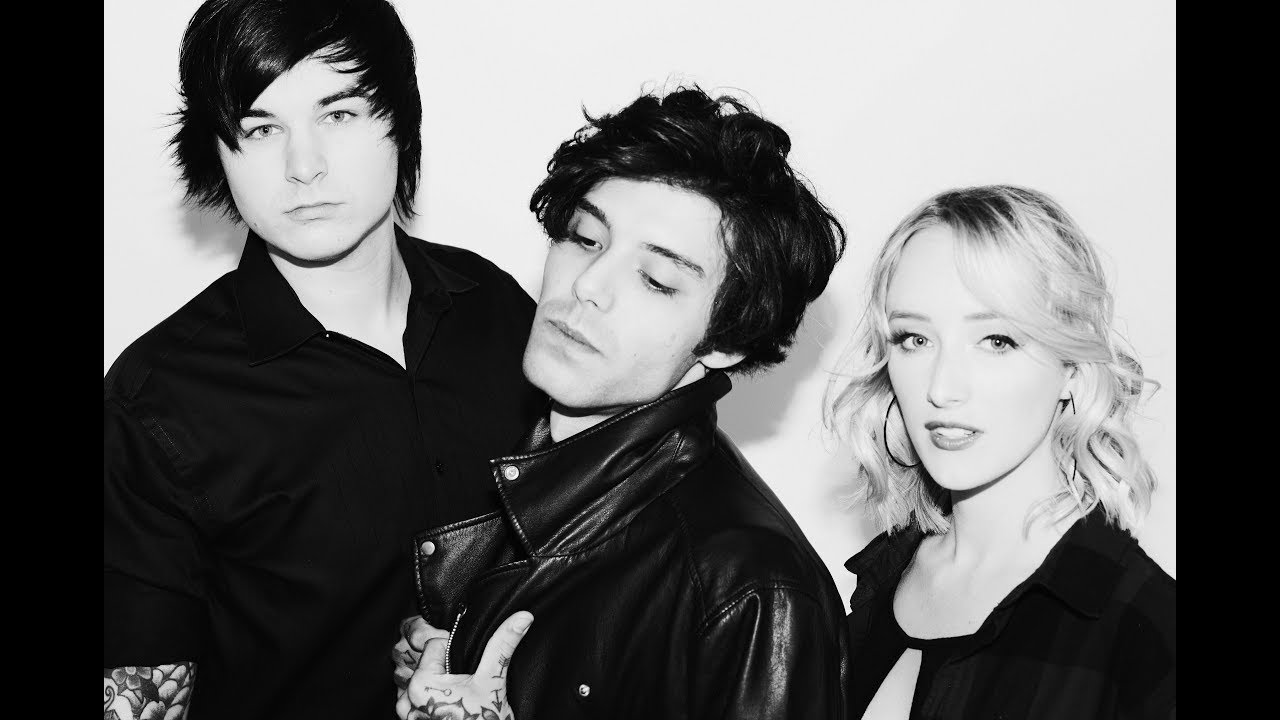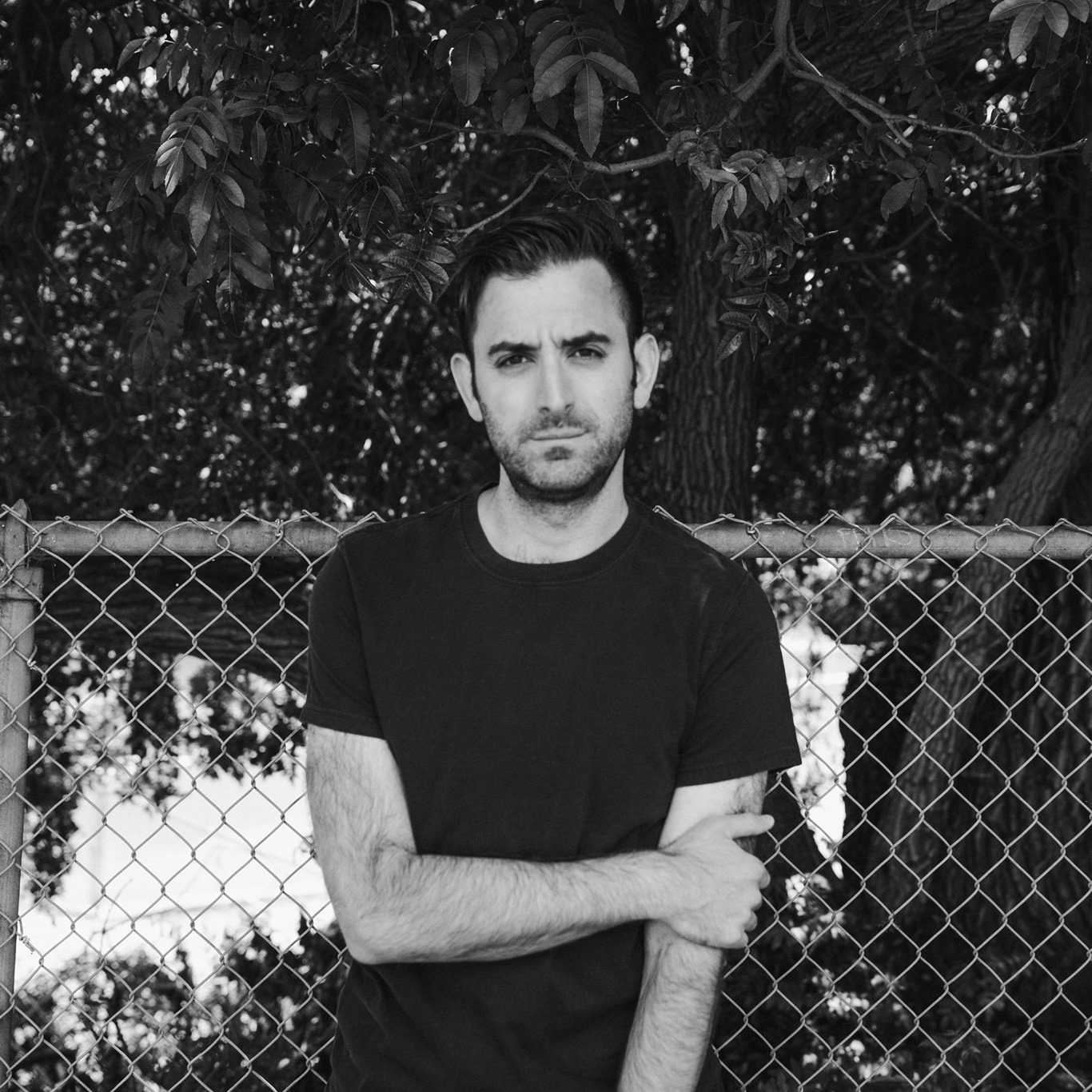The entertainment industry has been met with a certain amount of uncertainty because of COVID-19. Movie theaters shut down for a period, and the ones that are open are at a certain amount of capacity. Movie studios have either pivoted releases to streaming services or abandoned the 2020 release calendar entirely.
Everybody knows the adage, “the show must go on.” Film festivals across the country have either canceled or changed their models completely to adapt to the current landscape. Montclair Film Festival was no different. When the stay-at-home orders happened in New Jersey, the festival postponed their normal May date and dive deep into ways how they can make this year special. After testing drive-in experiences during the summer and watching other movie festivals around the country, they decided to hold this year’s iteration on October 16th-25th.
What came out was a hybrid of virtual and drive-in experiences. The storytellers series features top creatives such as Aaron Sorkin, Sienna Miller, and Stephen Colbert. The festival’s drive-in series is featuring movies like One Night In Miami and Nomadland that is getting considerable Oscar consideration. Sometimes you have to roll with the punches, and Montclair Film Festival is doing its best to make a great experience out of a complex situation.
I spoke to executive director Tom Hall about the challenges that the Montclair Film Festival faced, distribution of films, how the storyteller series came about, and the creation of this year’s hybrid experience.
Montclair Film Festival was originally supposed to take place in May, but in early March is when where things shut down in New Jersey. We started seeing the adverse effects of the pandemic and the festival was postponed until October. We saw South by Southwest get canceled and other film festivals started to move around. How was that process for you specifically?
So yes, we postponed on March 14th or right around there. At that moment, we had a full program lined up. We had all of our marketing materials ready with the dates on them and everything. The weekend prior to South by Southwest canceled, we were reading the tea leaves about what was going on. Especially with New Jersey being one of the early epicenters along with New York. We were following the lead of Governor [Phil Murphy] and reading the room a little. It was a bit of a worry because we’re like, “are we doing the right thing? We seem to be a little ahead of this.” We didn’t know exactly how it’s going to shake out.
In retrospect, it was like blindingly obvious, but it felt we were too far ahead of this. Then days went by and everything got postponed or canceled. So the good news was – I mean if there is any good news – it came at when we hadn’t laid out a bunch of cash for printing and all that stuff. We could conserve resources that we would have otherwise spent for the May festival. Sort of hold those back and put them in our back pocket for the feature. Then, we spent the late spring and summer testing out other festivals, virtual programs, and looking at how those operated. We launched our own drive-in program in Montclair, so we could (no pun intended) test-drive the concept. Just and see how we could make that work for what we were hoping for the fall.
So, after we looked at other people’s virtual festivals, and attended a few online, we started looking at companies to be a virtual festival service provider. We ended up with Eventive, who are doing a lot of festivals, and we’re thrilled with that choice. Then, there was a question of how do we make the engine of Montclair films, and the customer service system work with the virtual engine because they don’t really talk to each other. We had to build a custom way to integrate our ticketing and customer relationships with the virtual ticketing system and film delivery.
With the drive-in side, we asked how much demand is there for this type of experience? How do we put in a COVID compliant way? Even with Governor Murphy’s guidelines in place, that ended up being very successful for us. After we had those experiences, we wanted to announce a date. Our friends at the Hampton Film Festival also announced that they were going to continue on. We felt like the week after Columbus Day was a good time to start. The other festivals such as Toronto and New York Film would premiere things and have finished their programming by the time we launched.
I’ve been working in the film festival world since 1997 and it was interesting to see the shifts. Everybody is being very collaborative; transparent with sharing data, information, and best practices with each other across the festival community. It’s been very helpful. We plan to do the same once we have our lessons learned under our belt for the festival in October. I’m always grateful when we have a collegial experience with other festivals.
I think everyone recognizes the severity of the problem and wants to see our industry survive and thrive. Obviously, we want to do in-person screenings as soon as it’s safe to do it. It doesn’t seem like that’s on the horizon soon. I know Broadway just shut down through May 2021, and it’s concerning. So, we’re hoping that people will support us because every arts organization I know of needs support right now to survive through another six, seven months of uncertainty.
It’s uncharted waters for everybody. Especially being a festival director, I can imagine. Everybody is trying to figure out the best way to go forward because we all love film. We all want theaters back and that experience. Beyond Fest in LA, went full drive-in. Montclair is doing a hybrid where you have films like One Night In Miami and Nomadland, films that are gaining a lot of Oscars buzz in the drive-in portion.
So this question is a two-parter; How did you go putting together the drive-thru experience because New Jersey still has 25% limits on gatherings? Also, did you have any trouble gaining these films and working with vendors going drive-thru route?
The one thing that happened in New Jersey, no, there are specific guidelines for outdoor events driving count as an outdoor event. So yes, we set up over the summer testing out the governor’s guidelines on our process. We’ve capped vehicles at 100 vehicles. They’re spaced eight feet apart in every direction. We have a big parking lot. We’re asking people to stay in their cars and wear masks. If they’re outside of their cars, at certain screenings, we’re temperature checking people and all the stuff that is required.
Could that parking lot hold hundreds of more cars? Absolutely. However, we’re going to cap it at 100. That’s not been a problem because we were able to do this in June and July when things were a little dicier in terms of the numbers we were seeing in New Jersey. So, we got a lot of great responses from our patrons. We did surveys, and they felt safe. They felt like the other patrons were respecting the rules. We didn’t have any confrontations or mask enforcement or anything like that. It was a great experience for everybody.
On the drive-in front, it’s been very positive. In terms of titles. Well, we have relationships with all the companies, to begin with. You mentioned Nomadland which is Searchlight Pictures. One Night In Miami which is Amazon Pictures. Ammonite, which is Neon. Those companies know us, they know what kind of event we hold, and who our audience is because we’ve been working with them for nine years on other titles. Being in October, from the spring window to the award season window really opened a lot of doors. In fact, for us, I think the great thing that we’ve seen from distributors has been them recognizing that festivals need support. Their movies need support and there’s still going to be an award season. There’s still going to be an opportunity for them to build word of mouth and make money on these movies.
A lot of the films that are on the independent side are not your big blockbusters like Tenet and other movies that are going to lose hundreds of millions of dollars. These are more modest films they can experiment with, get out differently, and still be successful with. So, I think they see us as an established relationship that they can trust. We have an audience that they know for whom these films will resonate.
90% of everybody we spoke to was eager to experiment a little and play ball. We wanted to create a special experience for the drive-in and make it a unique environment for watching films with a big screen. We went for titles like Nomadland and One Night In Miami as our dock centerpiece for the driving because I think that’s a big-screen experience. Even though you’re in your car, it’s ok. We thought about what movies we’d put in our like two biggest theatres and that those became our drive-in. Our regular multiplex screenings became our virtual cinema in our brain. So, we tried to create what we consider being a theatrical experience as the driving and we got a lot of support that. I know a lot of companies are up in the air about virtual and not sure how they want to work with it.
We had one case with Minari with A24 where they only wanted to do virtual. We are working with them to provide them with really in-depth data about how our audience behaves. Not personal information, but to know how many people start the film and finish If we get any survey feedback from them anonymously, we can share it with the company. It’s given us a different opportunity to work with the distribution companies to get them data on the movies we’re showing.
We’re gonna stay in October, I think for the foreseeable future. Next year is our 10th anniversary, so it’s going to give us time to hopefully see some progress on COVID. create a safe environment for a year from now. We’re hopeful and optimistic. I have no information that anyone else doesn’t have about whether it’s feasible or possible, but we’re getting a little extra time to get prepared and be ready for next October.
I also wanted to ask about the short and documentary films. How has the switch been received with independent filmmakers? Some may be eager to show their films on a virtual experience. Some may also want to hold out for a movie theater experience for that chance that a big distributor sees it.
That has also been very positive for us. There have been people who’ve been hesitant and I get it. So, the issue that I think is out there in the industry is does playing a virtual screening impact your ability to do business with a streaming company like Netflix or Hulu or other companies who have streaming platforms and want streaming exclusivity? Well, you have sort of spoiled relationship with them because they’re gonna want exclusivity on virtual rights. Maybe you hold your movie and do a deal with those guys separate from the festival run. We saw instances where people are like, “We just can’t ruin our chance.” The streaming services now are like the major buyers of films outside of bigger Hollywood Studios.
Just from Toronto, I saw Netflix scooping up titles for the platform. So yeah, that part has been a bit touch-and-go with certain people. Mostly, filmmakers without distributions have been keen to reach audiences. You mentioned documentary films. A lot of times those films have a message or a mission that is more timely. They’re not like it’s not a film about that can be shown 10 years from now and have the same resonance. A lot of films are topical to our time and want to be seen now. Those films have definitely been much more adaptive early on. We were like getting a lot of maybes. Then as things unfolded over the summer, and they saw the success of other films and other festivals doing virtual screenings, people have e pivoted with the industry to allow it.
We left it up to the filmmakers to tell us what their strategy would be and what their restrictions are. For example, several of our films you can only watch in New Jersey. There are other films that are available all over the country. Then, here are some films that are like, “Listen, we’re gonna pretend this is in a movie theater. We only want to sell 250 tickets, which is the size of one screening in a 250 seat theater.”. So we cap the number of seats that are available. It could be a wide range of everything from “we want 1000 seats, but only in New York, New Jersey, and Connecticut.” Whatever the rules were for the strategy that that individual filmmaker had for their film and who they wanted to reach, we can customize each virtual screening to meet those requirements.
I think because we can micro-focus our screenings to the state of New Jersey, people feel a lot more comfortable. They’re not going to sort of blow any future chances for the film by playing a virtual festival. They can continue to like build word of mouth and interest in the industry around some titles doing it that way. We always would just show a film in a theater. Just to whoever bought a ticket and made it to Montclair and sat down in our theater. We can reach people in California, Alaska, Hawaii should the rights holder want an audience.
So we’ve been able to do some interesting online marketing to target different audiences. The vast majority of our audience has been our loyal patrons who’ve come to the festival. We’re also seeing interest popping up from all over the country. So that’s exciting, too. We’re reaching all different people.
I wanted to touch on this storyteller series because you have some impressive names on here. Aaron Sorkin is timely because The Trial of the Chicago 7 coming on Netflix this weekend. There’s also Sienna Miller, Steven Colbert, and the case study on Palm Springs, which is one of the year’s best films so far. How did you curate these this year?
Every year we’ve had people attend the festival. Ben Stiller has been there. Ethan Hawke, Jeff Daniels, Richard Curtis, and Rob Reiner. Those are always a lot of fun. It’s the storyteller series events and their conversation. We reach out to film companies and filmmakers and say we’d be interested in having XYZ filmmaker with us for that. With this year at being virtual, we had a lot of interest in us being in October and the launch of the award season. There was a lot more interest from different folks than we’ve ever had before.
Aaron Sorkin is the case where we’re not able to show The Trial of the Chicago 7 movie we liked very much because of our date and the timing of that film. However, we could bring Aaron Sorkin in and feature him without showing the movie at the time when the movie launches, hoping that we can generate some interest.
Sienna Miller was the same thing with Wander Darkly. That’s her terrific film that’s with Lionsgate. We saw that film and really liked it. The studio was interested in having a talk with Sienna Miller, so that came together very nicely. It’s a collaborative process between films and talent. We go out to many people that end up not being able to participate in the festival. It ends up being okay because, again, we’re building relationships. I think people trust this process with our organization. It’s not a news interview. It’s to highlight and celebrate the work of the artists.
We’ve been fortunate in that regard that people are eager to come and talk to us and having Stephen Colbert as a moderator doesn’t hurt. With Aaron Sorkin, we were like, “Hey, Steven, how do you feel about talking to Aaron Sorkin?” He’s like, “I’ve seen every episode of The West Wing. I love him, I’d be happy to talk to him.” Those are the nice moments where those things come together.
One of the interesting programs in our storyteller series this year is this stage reading that we’ve done with Stephen and a cast. We’ve got Keegan Michael Key, Dana Carvey, and Sheryl Crow. All done on zoom. Stephen came to us and he’s like, “We’ve never done a stage reading. I have the scripts sitting in my drawer. There are nine drafts of it. I would love to do like a staged reading of it with my friends to talk about how this pilot we wrote that never got made. And it’s terrible. And I really want to show it off because it’s so bad.” Also, talk about how pilot work gets done and also how much we’ve grown as artists and comedians. It was like a great idea.
So we ended up working with him to produce that event which we’ve never done before. With Stephen, we work with him to do two or three special events. I don’t want to take up too much of his time, but we’re grateful for whatever he can do with us. We always end up with a wonderful group of folks. I think zoom has made it a bit easier. People have to fly, stay in a hotel, and come out to Montclair. Now, they can do it from the comfort of their own home. So, that’s been one positive of the pandemic is having access to people.
Check out all the information about Montclair Film Festival here regarding tickets and special events.













